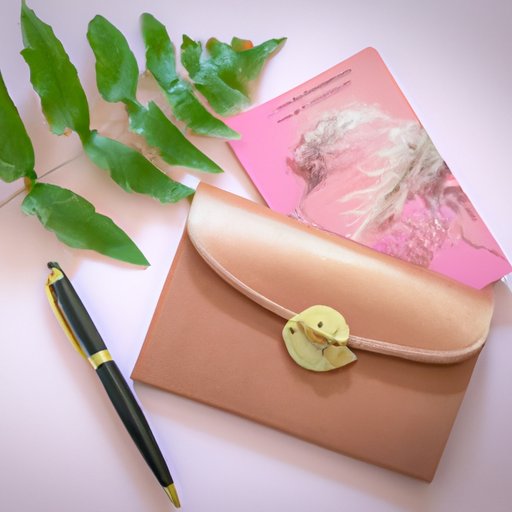Introduction
If you’re looking for a way to express yourself and explore your creativity, writing poetry can be a powerful tool. But for beginners, the world of poetry can be overwhelming. In this article, we’ll break down the basics of poetry writing and provide tips and techniques to help you get started. Here are the five topics we’ll cover:
- 10 Tips for Writing Poetry: A Beginner’s Guide
- Why Poetry Matters: Expressing Yourself Through Words
- Breaking Down the Elements of Poetry: Understanding Key Techniques
- Pushing Boundaries: Breaking Free from Traditional Poetry Rules
- Poetry Therapy: Using Words to Heal and Grow
10 Tips for Writing Poetry: A Beginner’s Guide
When you’re just starting out with poetry writing, it’s important to have a solid foundation. Here are ten tips to help you get started:
- Find Inspiration: Inspiration can come from anywhere – nature, people, objects, emotions, memories.
- Experiment with Form and Style: Don’t be afraid to mix it up – try writing in different forms, like haiku or sonnet.
- Develop a Unique Voice: Find your own voice and style that is unique to you.
- Read Poetry: Reading other poets’ works can help you find your own creative voice and teach you how to create rhythm and flow in your own writing.
- Revise and Edit: Edit and revise your work until it feels like it flows and resonates with you.
- Use Imagery and Sensory Details: Use concrete images and sensory details to create vivid and compelling poetry.
- Play with Sound: Experiment with different sounds like repetition, alliteration, or assonance to add musicality to your poetry.
- Write from Personal Experience: Write what you know – poetry is a great way to explore and process your own emotions and experiences.
- Use Metaphor and Symbolism: Incorporate metaphor and symbolism to add depth and meaning to your poetry.
- Share Your Work: Share your poetry with others to get feedback and inspiration.
Why Poetry Matters: Expressing Yourself Through Words
Poetry is a powerful form of self-expression that can resonate deeply with both the writer and reader. Some of the most beloved poets, like Maya Angelou and Langston Hughes, have captured the emotions and experiences of a generation through their work. Whether it’s expressing joy, pain, love, or longing, poetry allows us to connect with our own emotions and the emotions of those around us.
Poetry can also have a lasting impact on the literary world. Poets like Emily Dickinson and Walt Whitman challenged traditional poetry conventions, pushing the boundaries of what was considered acceptable in their time. Today, poets like Amanda Gorman are continuing this tradition by using poetry to address important social and political issues.
Breaking Down the Elements of Poetry: Understanding Key Techniques
Understanding key techniques is essential to writing effective poetry. Here are some techniques you should know:
- Meter: The rhythm of a poem, often created through stressed and unstressed syllables.
- Rhyme: The repetition of sounds at the end of words.
- Form: The overall structure of the poem, which can include things like stanza length and rhyme scheme.
- Metaphor: A comparison between two things that are not literally the same.
- Imagery: Language that evokes sensory experiences for the reader, often using vivid details.
- Personification: Giving human characteristics to non-human things.
- Alliteration: The repetition of consonant sounds at the beginning of words.
- Assonance: The repetition of vowel sounds in words.
Here are some writing exercises to help you practice these techniques:
- Write a poem that uses extended metaphors to describe a feeling or experience.
- Write a poem using only monosyllabic words.
- Pick a random object and write a poem about it, using as much sensory detail as possible.
Pushing Boundaries: Breaking Free from Traditional Poetry Rules
While it’s important to understand traditional poetry techniques, don’t be afraid to break free from convention and try something new. Experimental poetry styles, like free verse and concrete poetry, can push the boundaries of what is considered “good” poetry.
Here are some examples of experimental poetry styles you might want to try:
- Found poetry: Using existing text, like a newspaper article or song lyrics, to create a new poem.
- Ekphrastic poetry: Writing poetry in response to a piece of art.
- Spoken word poetry: Poetry performative poetry that is meant to be spoken aloud.
- Haibun: A mix of prose and haiku poetry.
Poetry Therapy: Using Words to Heal and Grow
Poetry can be a valuable tool for self-reflection, healing, and personal growth. Writing poetry can help you process difficult experiences, explore emotions, and gain new insights.
Here are some tips for using poetry as a form of therapy:
- Write about your feelings in the moment and don’t worry about making it “good”.
- Use poetry to explore difficult emotions, like grief or anger.
- Set aside time each day to write, even if it’s just a few minutes.
- Read poetry that speaks to you and resonates with your experiences.
Conclusion
Writing poetry can be a powerful way to express yourself and explore your creativity. By understanding key techniques, experimenting with different styles, and tapping into your own emotions and experiences, you can create poetry that resonates on a deep level. Whether you’re looking to break free from traditional conventions or use poetry as a therapeutic tool, there are endless possibilities in the world of poetry writing.
For more resources on writing poetry, consider joining a writing group, taking a class, or reading books on the topic. The more you explore and practice, the more you’ll discover your unique style and voice as a poet.
